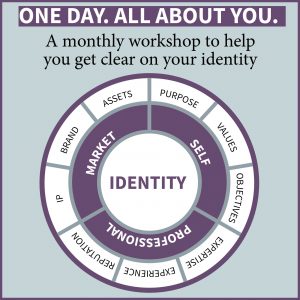We all feel inadequate at some point in our lives. We may feel scared that we’re about to be found out as a fraud, that we don’t belong, and that we ended up where we are by accident.
This feeling is called imposter syndrome.
When I first heard the term ‘impostor syndrome’, I thought it was the name of a Scooby-Doo villain. Early in my career, it wasn’t a concept I had come across before. But little did I know, I was about to experience the unpleasant feelings associated with impostor syndrome. Back in the early 2000s, when I first started managing a team, I felt the sting. Soon after I started my first managerial position, unwelcome thoughts started creeping in.
They’re going to find out I don’t know everything. They’re going to realise that I’m winging it. They’ll find out, and I’ll be exposed as a fraud.
Wanting these thoughts to stop, I spent hours upon hours researching how to be a good leader. I burned the midnight oil in a desperate attempt to learn the secret formula to being a good leader. Frankly, it was exhausting. Not only was I doing a full work week, but I was also spending hours at home conducting copious amounts of research in the hope it’d make me a perfect leader.
Hoping to acquire as much knowledge as possible, I booked myself onto a course to learn how to be a good leader for my team. While it was insightful, I didn’t have an opportunity to apply these newly learned skills in a real-world scenario. So, I decided to apply what I’d learned, and as a result, devised strategies to combat impostor syndrome.
What is impostor syndrome?
The Oxford English dictionary defines ‘impostor syndrome’ as “the persistent inability to believe that one’s success is deserved or has been legitimately achieved as a result of one’s own efforts or skills”. Those experiencing impostor syndrome may have intense feelings of self-doubt and may struggle to recognise their achievements.
Traditionally, it was a phenomenon associated with primarily women. However, research has found that impostor syndrome affects all genders. Nearly 70% of individuals will experience symptoms of impostor syndrome at least once in their life. No matter the age, gender, or occupation, millions of people feel like an impostor at any one time, and we each have our own personal brand of impostor syndrome. Perhaps you’re an entreprenostor, mumposter, managerpostor; think of any noun and add ‘poster’ to the end of it, and there will be plenty of people in that same situation feeling similar to you.
How does impostor syndrome affect people?
In her book, The Secret Thoughts of Successful Women: Why Capable People Suffer from the Impostor Syndrome and How to Thrive in Spite Of It, Dr Valerie Young categorises those struggling with imposter syndrome into five groups. You may find that you relate to one (or several) of the categories below.
The Perfectionist
Perfectionism and impostor syndrome are often closely linked. Perfectionists will set high standards and goals, some of which may be extremely difficult to achieve. When a perfectionist does not achieve a goal, they set for themselves, they experience crippling self-doubt about their abilities.
If you can relate to this form of impostor syndrome, you may struggle to enjoy your successes. Instead, you focus on how they can do better next time. This thought pattern leads to burnout, which is characterised by feelings of exhaustion and cynicism. Mistakes happen, and everyone has flaws; don’t let perfectionism stop you from pursuing your goals.
The Superwoman/man
People who feel like an imposter often invest more time and effort in their work to measure up to those around them. They believe that they are lagging compared to those around them and will do anything they can to make themselves feel like they are catching up.
If this form of impostor syndrome applies to you, focusing on internal rather than external validation is vital. You may take constructive criticism as a personal attack, and in your mind, criticism may feel like an affirmation that you are a fraud. This couldn’t be further from the truth. We’re human, and our work isn’t always 100% perfect. Once you stop seeking external validation and look internally, you’ll realise how component you are.
The Natural Genius
This form of impostor syndrome makes the sufferer feel they must be a natural genius to thrive. As a result, they judge competence based on the speed and ease with which they can accomplish tasks. Those who fit the natural genius type of impostor syndrome set ridiculously high standards for themselves and will judge themselves incredibly harshly if they get something wrong. If this form of impostor syndrome sounds like you, viewing yourself as a work in progress is valuable. No one is perfect, and it’s rare to get everything right on the first try.
The Soloist
Soloists are fiercely independent. They want to figure everything out without help and view needing assistance as a failure. If this sounds like you, please know that being independent is acceptable, but refusing help when you need it is not helpful. Know that there is no shame in needing help; we all need help sometimes.
The Expert
Think of the expert as the perfectionist but with an extreme thirst for knowledge. They measure their worth and competence based on how much they know. As a result, their biggest fear is that they’ll be exposed as unknowledgeable. Does this sound like you? To combat this form of impostor syndrome, try to learn skills applicable to your role, rather than trying to learn everything even remotely relevant.
Some of the world’s best-known names experience impostor syndrome
You may feel like you’re the only person dealing with imposter syndrome and that everyone around you is thriving. This simply isn’t true. In a 2013 interview, actor Emma Watson explained her experiences with impostor syndrome. She said, “It’s almost like the better I do, the more my feeling of inadequacy actually increases, because I’m just going, any moment, someone’s going to find out I’m a total fraud, and that I don’t deserve any of what I’ve achieved.”
In her book Lean In: Women, Work, and the Will to Lead, Sheryl Sandberg, Chief Operating Officer at Facebook, explained her experiences with impostor syndrome. She wrote that she believed she had “fooled everyone again” if she did well in tests at school and that soon “the jig would be up”.
Small business owners experience impostor syndrome, too
According to a recent study by Kajabi, imposter syndrome affects 84% of business professionals and entrepreneurs. Starting a new business is highly rewarding but also terrifying. You’re letting go of your old identity; you’re stepping into a whole new identity that will feel completely alien. As a result, you may start to feel those all too familiar thoughts…
Will I be able to learn how to run a successful business? What makes me think I’m capable of running my own business? I’ll probably have to do more public speaking – will I be a good speaker? Will people want to listen to me?
The likelihood is that one or more of these questions have been swirling around your head ever since you started your business. But, from experience, I found that grappling with impostor syndrome, surprisingly, did have some benefits.
How can impostor syndrome serve us?
Experiencing impostor syndrome was a rallying cry for me. I was giving myself a call to action to learn and develop skills to make me a better leader. So, I scoured the internet to find valuable resources that taught me how to overcome impostor syndrome, and in the process, I discovered that the experience had made me stronger.
A recent study by Wharton researcher Basima Tewfik found that workers experiencing impostor thoughts were rated more interpersonally effective than their non-impostor peers despite self-doubt. Tewfik explained: “They were more empathetic, they were better listeners, they asked better questions”.
Impostor syndrome has been studied for decades, but until very recently, there has been little investigation into how experiencing impostor syndrome can lead to future success. Tewfik’s enlightening research revealed that some self-doubt is helpful.
Leaning into the feeling of self-doubt and using that motivation to close the competency gap between yourself and your peers may give you a competitive edge. In addition, by actively working to prove yourself to those around you, you’re also demonstrating your ability to yourself.
What’s your imposter telling you – Scooby?
ABOUT THE AUTHOR
Sarah Jones works with leaders, organisations and teams, helping them to improve employee retention & revenue growth by allowing employees to build thriving career paths inside the organisation and increase their performance and visibility.
She also helps new and established leaders to ‘step into their roles & develop the confidence and resilience they need to love their work and lead the organisation to success.
Her mission is to improve team communications, performance and reduce conflicts.




